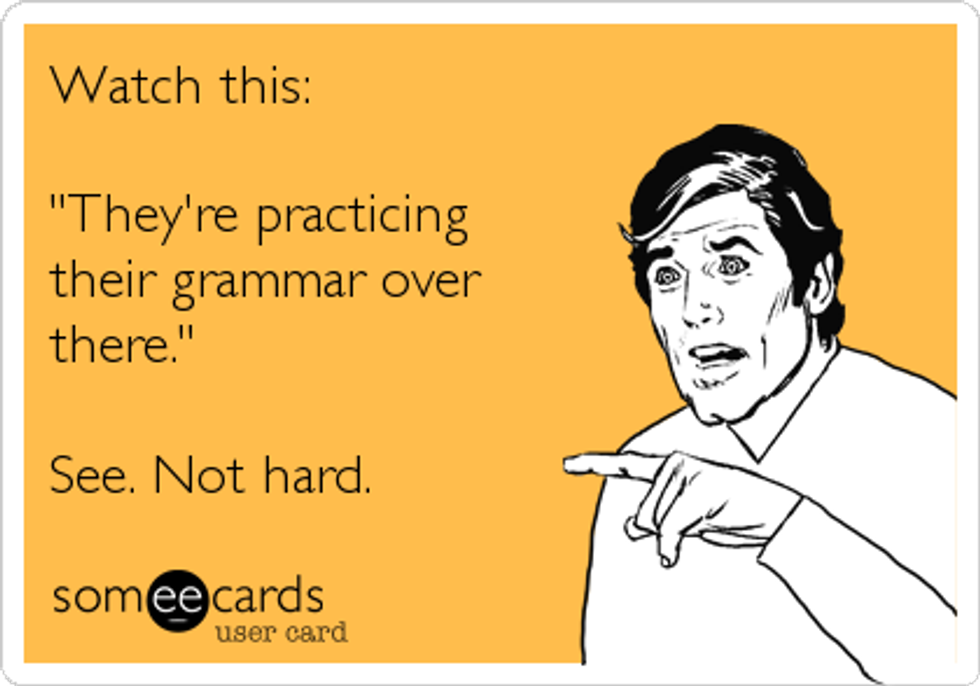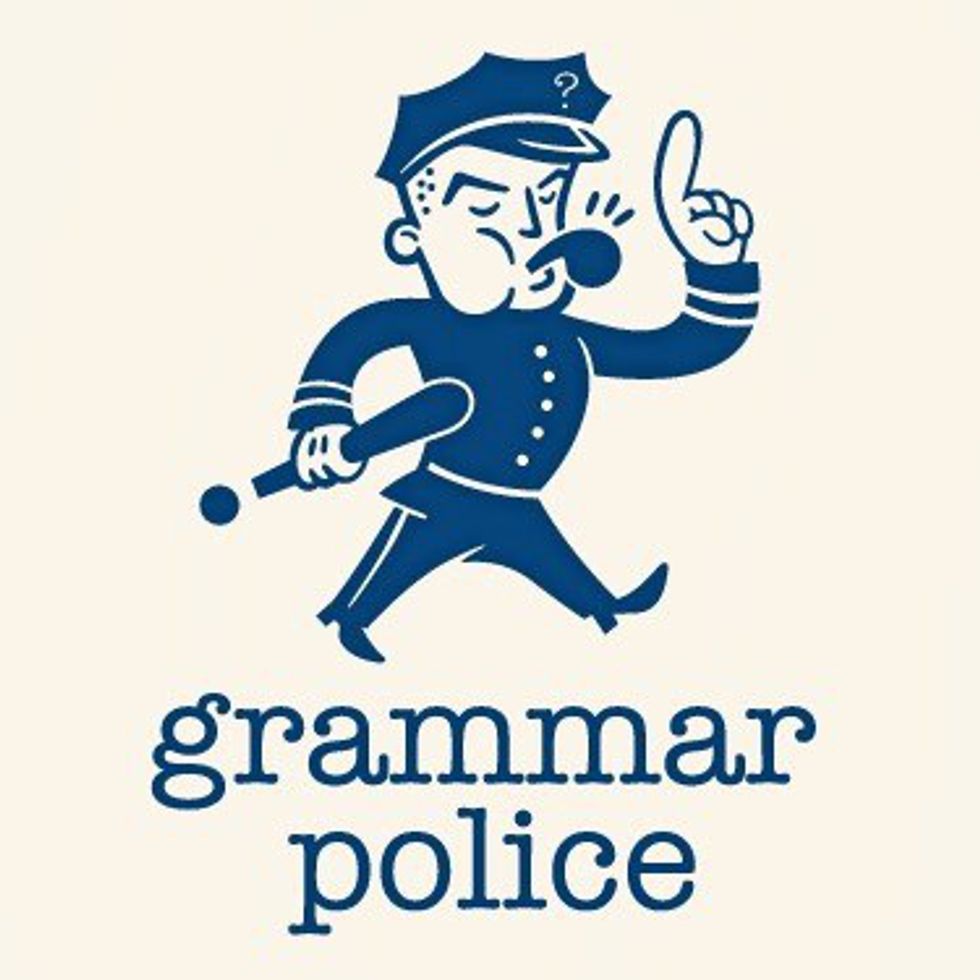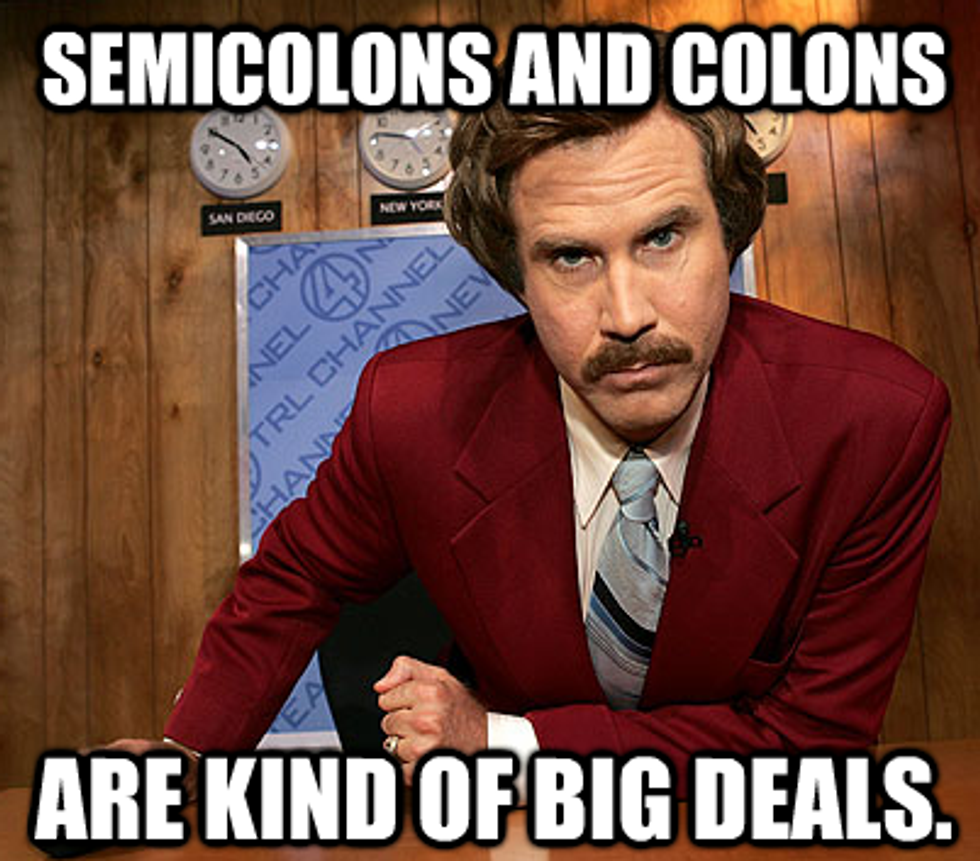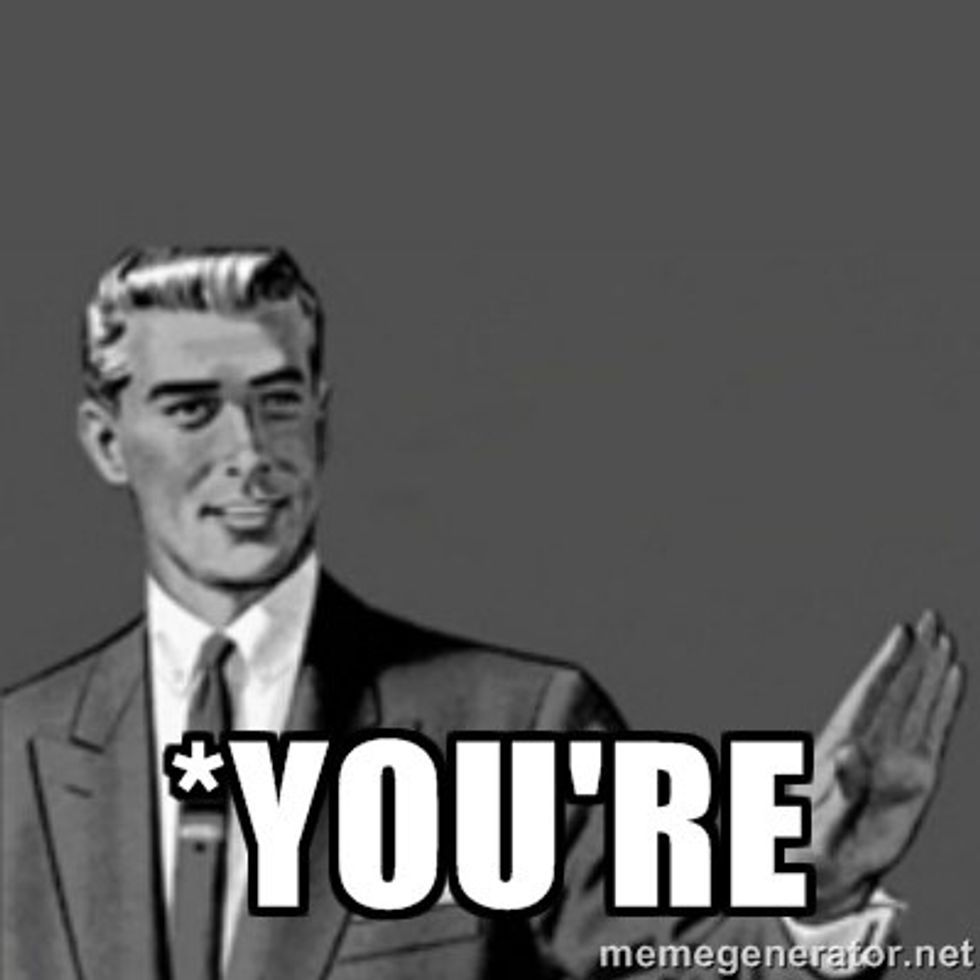English is arguably one of the most important subjects that we all learn in school. It's the foundation for the way we form sentences, and it's how we sound educated. The basic rules of English are being provided to you in this article. Read it. Learn it. LIVE IT.
1. Their, They're, and There

Recommended for you
"They're (they are) going to the mall." They're is a contraction of they are.
"Their party was lit." Their indicates possession.
"The ball is over there." There refers to a place.
2. NEVER end a sentence in a preposition. Just don't.
Ending a preposition in a sentence will get the grammar police out looking for you. A preposition connects a noun, or is placed between nouns and pronouns. For example, "The girl behind the boy." Behind is the preposition. A common preposition many people end a sentence with is "at." Such as, "Where you at?" Don't be that person!
3. Colons and Semicolons
Using colons only make you look smarter if you use them correctly. There is a certain time and place for colons/semicolons.
When using a colon, you are either introducing a list of items, separating a sentence when the second sentence explains the first, and/or introducing a quote.
Semicolons are a bit different. They are normally placed before words like "therefore" and "furthermore."
4. "I" and "Me"
I can't tell you how many times I see people use "I" and "me" incorrectly. This is probably one of most frequent mistakes almost everyone makes. Let's take a look at some examples.
"Megan took Seth and I to the mall." "I" is used incorrectly in this sentence. If you take away Seth, it leaves you with "Megan took I to the mall." Replace this with "me" and now you have a grammatically correct sentence.
"Megan and I made the cheer team." This is a correct sentence because if you take away Megan, it leaves you with "I made the cheer team," which makes perfect sense.
5. You're and Your
These two words get mixed up so frequently, but there is an easy way to tell the difference. You're is a contraction of you are. You can tell when it is used correctly when you say the contraction out loud in a sentence. "You're very pretty. You are very pretty." A sentence where it does not work would be "You're dog is nice. You are dog is nice." That is where your comes in. Your is possessive, meaning it's yours. See what I did there? "Your outfit is on fleek." By saying the words out loud, you will immediately be able to spot the mistake.
6. Affect vs. Effect
I will admit, I still get these two words mixed up. They are tricky, but when you know how they are used in a sentence, they will become easier to use.
Affect means "to influence." Effect means the result of something. Let's use them in a sentence!
The injury affected his nae nae skills.
Her tantrum was for effect.
We all make grammar mistakes, but hopefully this will be a guide to sound extra smart in front of your friends. Grammar is important people! Avoid these six mistakes so the grammar police won't get you!























